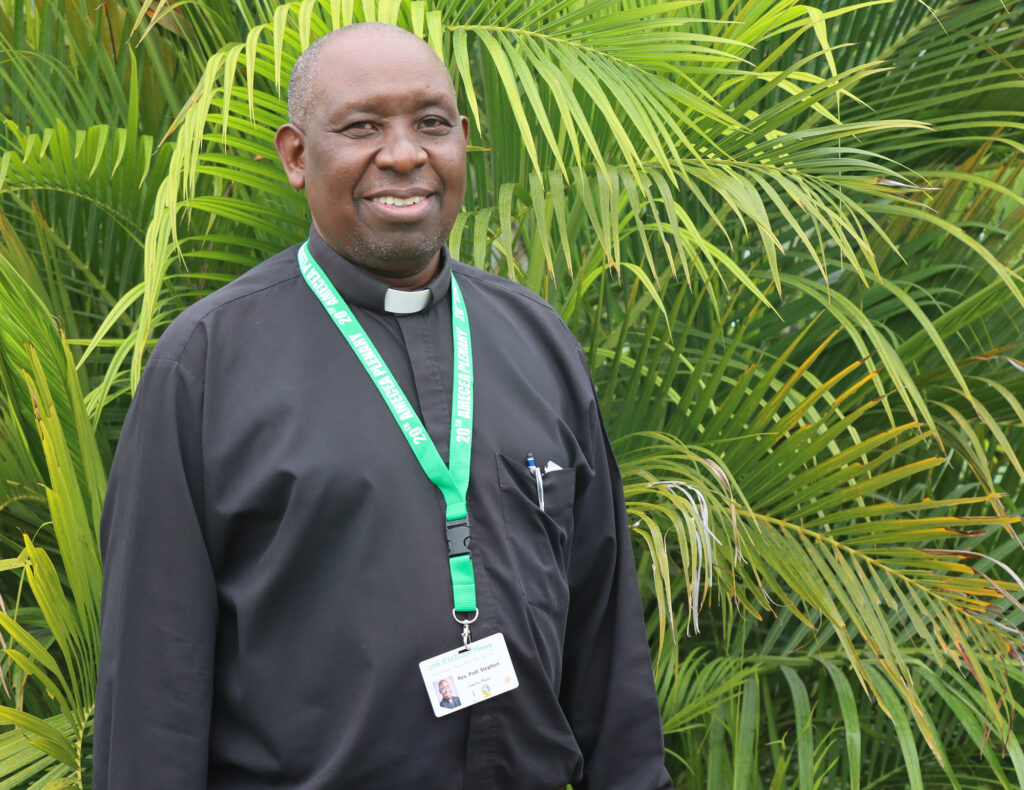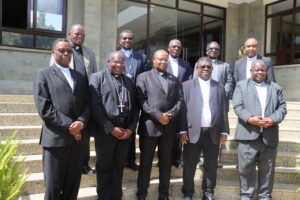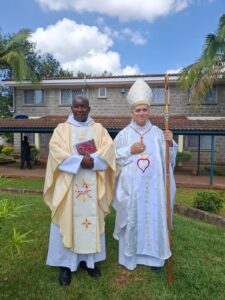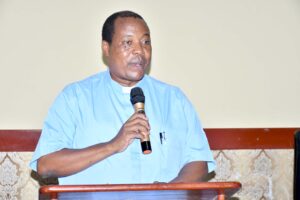AMECEA PLENARY: CUEA Vice Chancellor Reports University’s Milestones to AMECEA Bishops

Fr Prof. Stephen Mbugua CUEA Vice Chancellor
Sr. Jecinter Antoinette Okoth, FSSA
In his report to the Bishops of the Association of Member Episcopal Conferences in Eastern Africa (AMECEA) during the 20th plenary assembly business session in Tanzania, the Vice Chancellor (VC) of the Catholic University of Eastern Africa (CUEA) updated the bishops on the four-year turn around journey of the university from the year 2018-2022.
Sharing about CUEA’s milestones in an interview with AMECEA online Saturday, July 16, after his presentation, Very Rev. Fr. Stephen Mbugua Ngari disclosed that the report highlights how the situation of university was in the previous years by the time AMECEA held its 19th plenary assembly in Addis Ababa, Ethiopia, and its current position.
Speaking about the operations of CUEA which are currently guided by the University Charter and Statutes, Apostolic Constitution Veritatis Gaudium on ecclesiastical Universities and faculties, the University Act Chapter 210B of 2012 and the Mission, vision and values of the university, the Kenyan cleric disclosed that CUEA has a strategic plan that covers three stages: the stabilization stage, the transformation stage and the growth stage to help in the realization of the milestones.
Fr. Mbugua shared during the interview that during the stabilization stage which was meant to be from 2018-2019, “CUEA redefined the strategic focus to ensure its financial stability aligned to the long-term goals of the university.”
According to the VC , the “financial management and revenue collection has improved and the university continues to stabilize the operation standards by scrutinizing the cost structure to reduce non-essential spending.”
“We have fused stabilization with transformation, a phase that is meant to help us pay all our debts by the year 2024,” He explained.
The transformation stage which according to the strategic plan commenced in the year 2020, focuses on strengthening governance structures, having a functional business incubation centre, process re-engineering and automation of operation through Enterprise Resource System (ERS) and address staff welfare and career growth.
To diagnose the challenges CUEA was facing in the past years Fr. Mbugua said during the interview, “we carried out several audits including, forensic, Human Resource, workload and academic management audits where we came up with various policies and aligned them with our strategic turnaround. All these were approved by the university council and briefed to the AMECEA board.”
Through the various audit reports, the VC disclosed that the University has strengthened its structures to help it “improve its performance, become more stable and productive in the long run so as to develop new programs the will raise the university’s income.”
He revealed further that the Commission for University Education (CUE) had last year lifted the revocation of CUEA’s Charter which had earlier been proposed as a warning that the University would face closure if it does not restructure their operations and get a sound financial footing.
For the growth stage, the VC highlights how it has been fused with the transformation and is envisioned to be steadily implemented in the period 2025-2030, where “all programs are to be self- sustaining, there should be 100% cohort system, an operating surplus of 30%, the university will be a model of Catholic Institution of higher learning with globally competitive graduates.”
The university anticipates to continue with activities that will improve the infrastructure and growth of CUEA.


